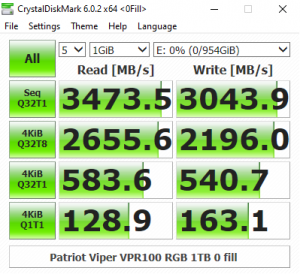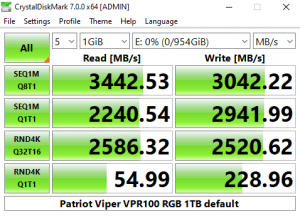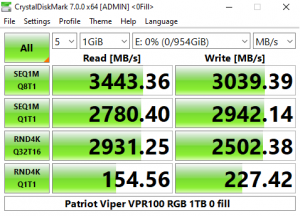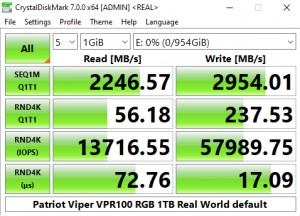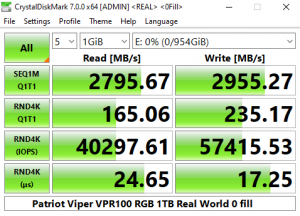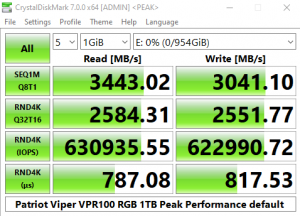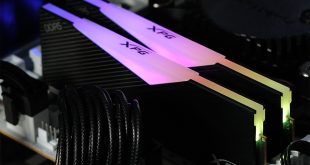CrystalDiskMark is a useful benchmark to measure theoretical performance levels of hard drives and SSDs. We are using v6.0. and v7.0.
In the CrystalDiskMark 6 QD32 test, the Viper VPR100 shows an improvement in both read and write performance over the VPN100 drive. As the both drives use the same controller/NAND combination it's probably down to tweaks in the later version of the firmware that the VPR100 uses.
The differences between the VPR100 and VPN100 disappear when the drive is tested at a shallow QD of 1.
The latest version of CrystalDiskMark, version 7, includes a couple of profiles that can be used for testing – Peak Performance and Real World. The result screens for these two profiles not only display MB/s results but also IOPS and latency.
Looking at the Peak Performance results for Sequential read/write performance we see that the review drive couldn't get to the maximum official quoted CrystalDiskMark score of 3,900MB/s, with a read figure of 3,443MB/s. However, the write figure of 3,038MB/s was faster than the official 2,900MB/s.
When it came to 4K random read/write performance in the Peak Performance Profile, the drive confirmed the official 700,000 IOPS read figure with 719,491 IOPS but only when dealing with compressible data. Conversely, the faster write performance of 622,990 IOPS came when the drive was dealing with incompressible data, but impressive as that figure is, it's still short of the official maximum of 650,000 IOPS.
 KitGuru KitGuru.net – Tech News | Hardware News | Hardware Reviews | IOS | Mobile | Gaming | Graphics Cards
KitGuru KitGuru.net – Tech News | Hardware News | Hardware Reviews | IOS | Mobile | Gaming | Graphics Cards




